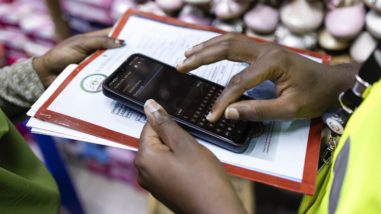In his three-minute TED Talk, Derek Sivers tells us that a movement is made not by charismatic leaders but rather by the first followers. It is the people who are alert to a new idea, who are inspired to leave their comfortable routine, and who adopt and adapt an innovation—these are the movement makers.
If that’s true—and I think it is—then the makers of the movement for greater accountability and more involvement by parents in education are people like Baela Raza Jamil, Rakesh Rajani, Sara Ruto, John Mugo, Abdou Fall, Boureima Allaye Touré, Massaman Sinaba, Modupe Adefeso-Olateju, Felipe Hevia and many others. They are the ones who saw the potential in the pioneering efforts of India’s ASER Centre to set a learning-focused agenda in both the classroom and in the Cabinet. And they have put in the hard work to find out—along with parents and teachers—whether kids are able to read and do math at grade level. The citizen-led learning assessments are now helping to shape the debate about education access and quality in Pakistan, Tanzania, Uganda, Kenya, Senegal, Mali, Nigeria, and Mexico. And the movement they are making is fascinating, in part because it is so varied.
Take Mexico, for instance, which on first glance isn’t much like India at all: Higher income, higher enrollment rates in both primary and secondary school, and participants in the PISA exam, the most widely known international test of learning. Surely the Mexican education system doesn’t need parents checking up on whether the many, many pesos spent—one out of every five collected in taxes goes to education—are turning into learning.
On closer inspection, however, the case for citizen-led assessments becomes clearer. Many observers of the Mexican education system see the need for major reforms oriented toward better outcomes from the earliest grades. Teacher strikes, underachievement on PISA, and wide disparities in access to and quality of education from state to state and village to village suggest that Mexico’s future economic growth and social development are handicapped by shortcomings in education. Conversations at the local and national levels have to be reoriented to focus less on the inputs, like teacher pay, and more on what it all adds up to.
Thinking about how to start that conversation, Felipe Hevia, a member of the faculty of Mexico’s Center for Research and Advanced Studies in Social Anthropology, traveled to India in 2013 to see for himself how household assessments were conducted and what difference they can make. What he saw was intriguing: volunteers going door to door, testing children in their homes on their reading and math skills—an activity that shows parents the child’s abilities and gaps in her or his learning, and that produces data that can be aggregated across a community, district, or state to give a full picture of areas of achievement and deficit.
Felipe, a researcher who specializes in issues of government accountability and citizen engagement, saw the potential: when information like this is generated by citizens and then made visible through advocacy groups and the media, it can shine a light on problems that otherwise would go unseen. And it might just provoke some new solution-finding. He also found a community of practice, the PAL Network, ready to welcome him and provide inspiration and practical advice along the way. The Mediciόn Independiente de Aprendizaje (or Independent Measurement of Learning) initiative, known as MIA, was born in the state of Veracruz and it is now poised to expand to four additional states.
Funders cannot make movements. All we can do is give the space for movements to emerge: We can make it easier for people in one country to learn about what’s going on in another, and offer modest resources for people committed to social change to try-fail-learn-fix. We can encourage both the innovation and the adaptation. And we can ourselves be willing to follow the leader. In the case of both the citizen-led learning assessments and the wider field of transparency and accountability, it’s a rewarding role to play.



